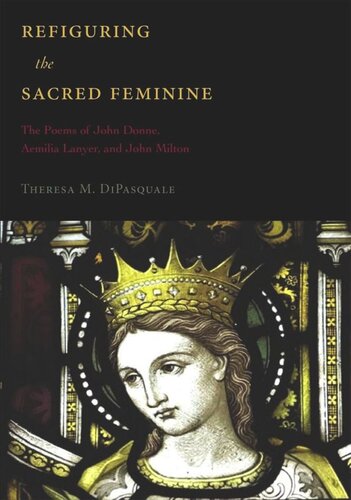

Most ebook files are in PDF format, so you can easily read them using various software such as Foxit Reader or directly on the Google Chrome browser.
Some ebook files are released by publishers in other formats such as .awz, .mobi, .epub, .fb2, etc. You may need to install specific software to read these formats on mobile/PC, such as Calibre.
Please read the tutorial at this link: https://ebookbell.com/faq
We offer FREE conversion to the popular formats you request; however, this may take some time. Therefore, right after payment, please email us, and we will try to provide the service as quickly as possible.
For some exceptional file formats or broken links (if any), please refrain from opening any disputes. Instead, email us first, and we will try to assist within a maximum of 6 hours.
EbookBell Team

5.0
60 reviewsTheresa M. DiPasquale’s study of John Donne, Aemilia Lanyer, and John Milton demonstrates how each of these seventeenth century English poets revised, reformed, and renewed the Judeo-Christian tradition of the sacred feminine. The central figures of this tradition—divine Wisdom, created Wisdom, the Bride, the Blessed Virgin Mary, and Ecclesia—are essential to the works of Donne, Lanyer, and Milton. All three poets are deeply invested in the ancient, scripturally authorized belief that the relationship between God and humankind is gendered: God is father, bridegroom, king; the human soul and the church as corporate entity are daughter, bride, and consort.
This important text not only casts new light on these poets and on the history of Christian doctrine and belief, but also makes enormous contributions to our understanding of the feminine more broadly. It will be of interest to scholars who study the Literary Studies, religion, and culture of early modern England, to feminist theologians, and to any reader grappling seriously with gender issues in Christian theology and spirituality.